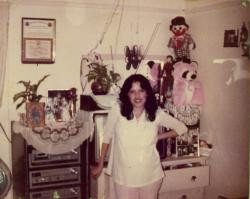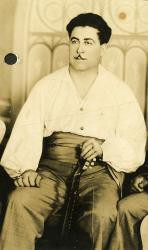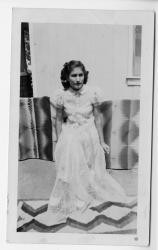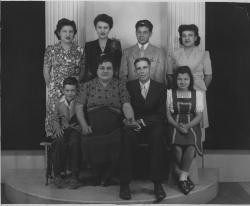UCLA Chicano Studies Research Center
Social Studies, Arts
:
Since its founding in 1969, the UCLA Chicano Studies Research Center (CSRC) has played a pivotal role in the development of scholarly research on the Chicano-Latino population, which is now the largest minority group in the United States. Our research mission is supported by five distinct components: a library with special collections archive, an academic press, collaborative research projects, public programs and community-based partnerships, and a competitive grant, scholarship, and fellowship program.
UCLA Chicano Studies Research Center's collections
Los Angeles Latino Families Photo Project
<p>The Los Angeles Latino Families Photo Project was launched at the UCLA Chicano Studies Research Center (CSRC) spring 2012. It is an extension of an earlier initiative launched in 2007 to combat the invisibility of the Mexican American contribution to Los Angeles and California history predating the social movements of the 1960s and 1970s within textbooks, trade, and academic books and articles. With the generous support of the John Randolph Haynes and Dora Haynes Foundation, the CSRC was able to digitize close to 3,000 images from the Edward R. Roybal Papers and the Yolanda Retter Vargas Collection of Orphan Photographs. The first collection documents Edward Roybal’s public service career from the 1940s to the 1990s as a Los Angeles city councilman and a U.S. congressman. The second was collected by the previous librarian, Yolanda Retter-Vargas, who found the photographs at various flea markets. This collection consists of “orphan” photographs—images with no provenance information. They appear to belong to six families. Both collections have been completed and are available on the UCLA Digital Library. <br /><br />After completing this project we quickly realized that Los Angeles Latino history is incomplete without the stories of its citizens. The Los Angeles Latino Families Photo Project was developed as a way to fully capture the complexity of this city’s history as well as address the issue of preservation through the digitization of vulnerable image-based collections. The photographs found in this particular collection were digitized and preserved during a Friends of the Library workshop held at the Chicano Studies Research Center spring 2012. They highlight the day-to-day lives of Latinos and Latinas living in Los Angeles over time. They document their families' histories and cultures capturing their movements between the United States and Latin America. One of the project’s goals is to provide the opportunity for community members to contribute additional photographs and information for the archival record.</p>
<p>#LatinoHAC <br /></p>
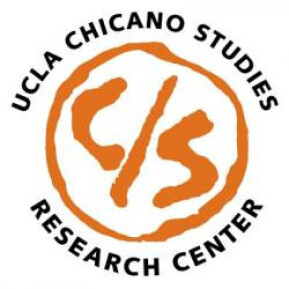 UCLA Chicano Studies Research Center
UCLA Chicano Studies Research Center
39
Pedro J. Gonzalez
<p>A telegraph operator for Pancho Villa during the Mexican Revolution; a radio personality and popular recording artist in Los Angeles; an immigration activist framed for political purposes and sent to San Quentin prison; and finally, a man fighting for the rights of his fellow veterans. Pedro Gonzalez played all these roles and this collection consists of his papers, music, media coverage, and many photographs and photo montages documenting his life.</p>
<p>#LatinoHAC #UnconstitutionalDeportation<br /></p>
 UCLA Chicano Studies Research Center
UCLA Chicano Studies Research Center
40
Ricardo Munoz Repatriation Papers
<p>Ricardo Munoz was a Los Angeles lawyer and later an administrative law judge with the California Unemployment Insurance Appeals Board. This collection includes photographs that document his family history during the Mexican Repatriation era of the 1930's. Many of the photographs include handwritten descriptions and dates on the back sides.<br /></p>
<p>#LatinoHAC #UnconstitutionalDeportation<br /></p>
 UCLA Chicano Studies Research Center
UCLA Chicano Studies Research Center
55

